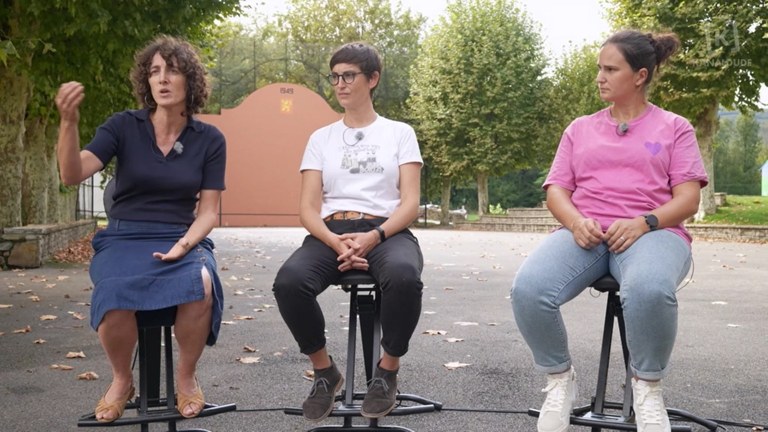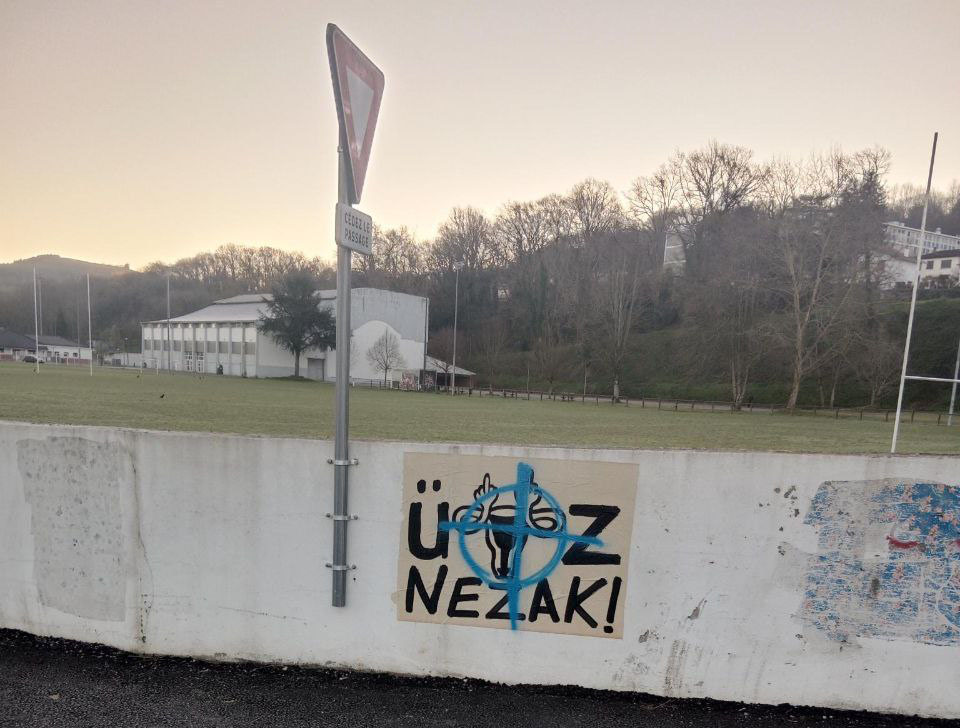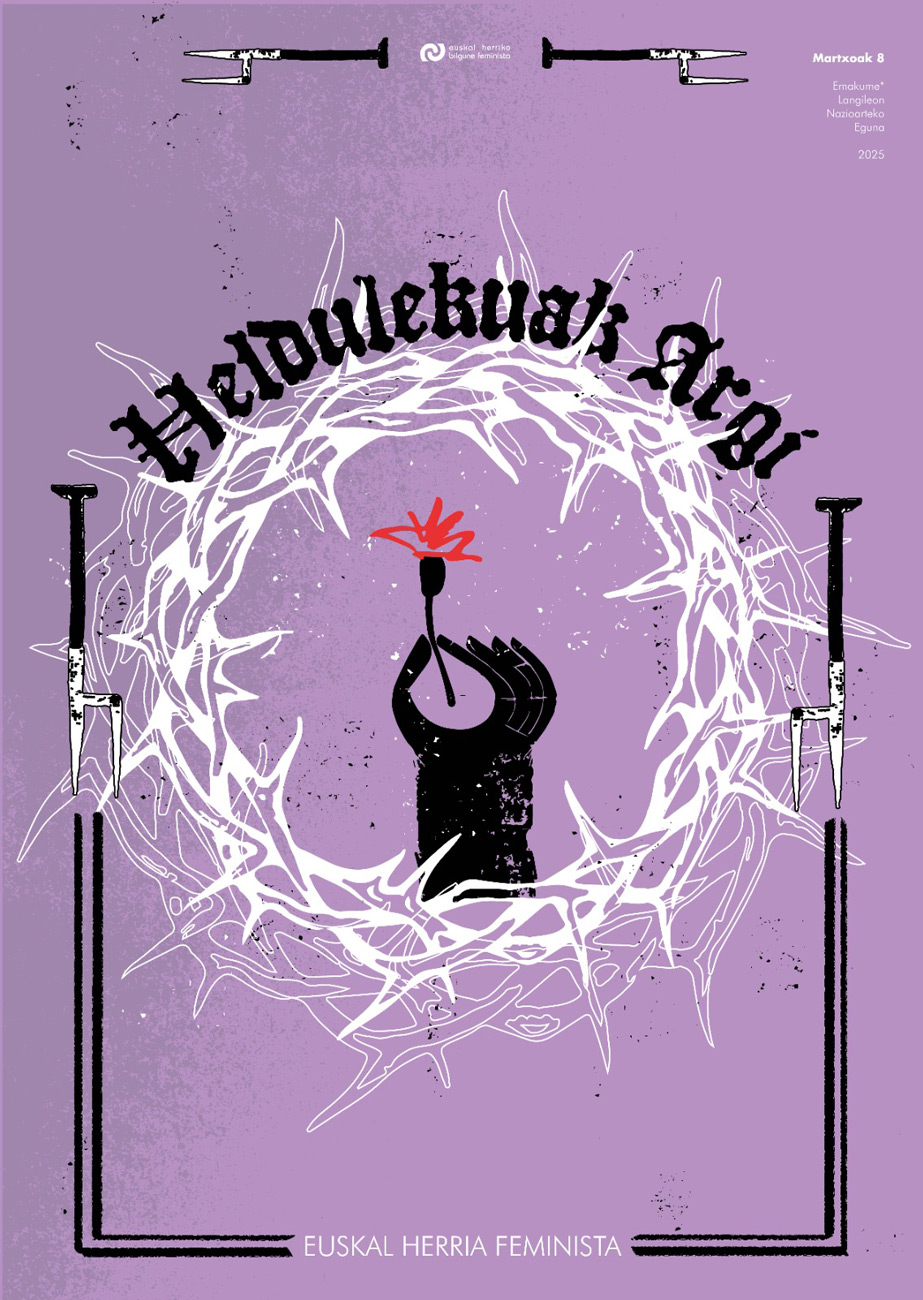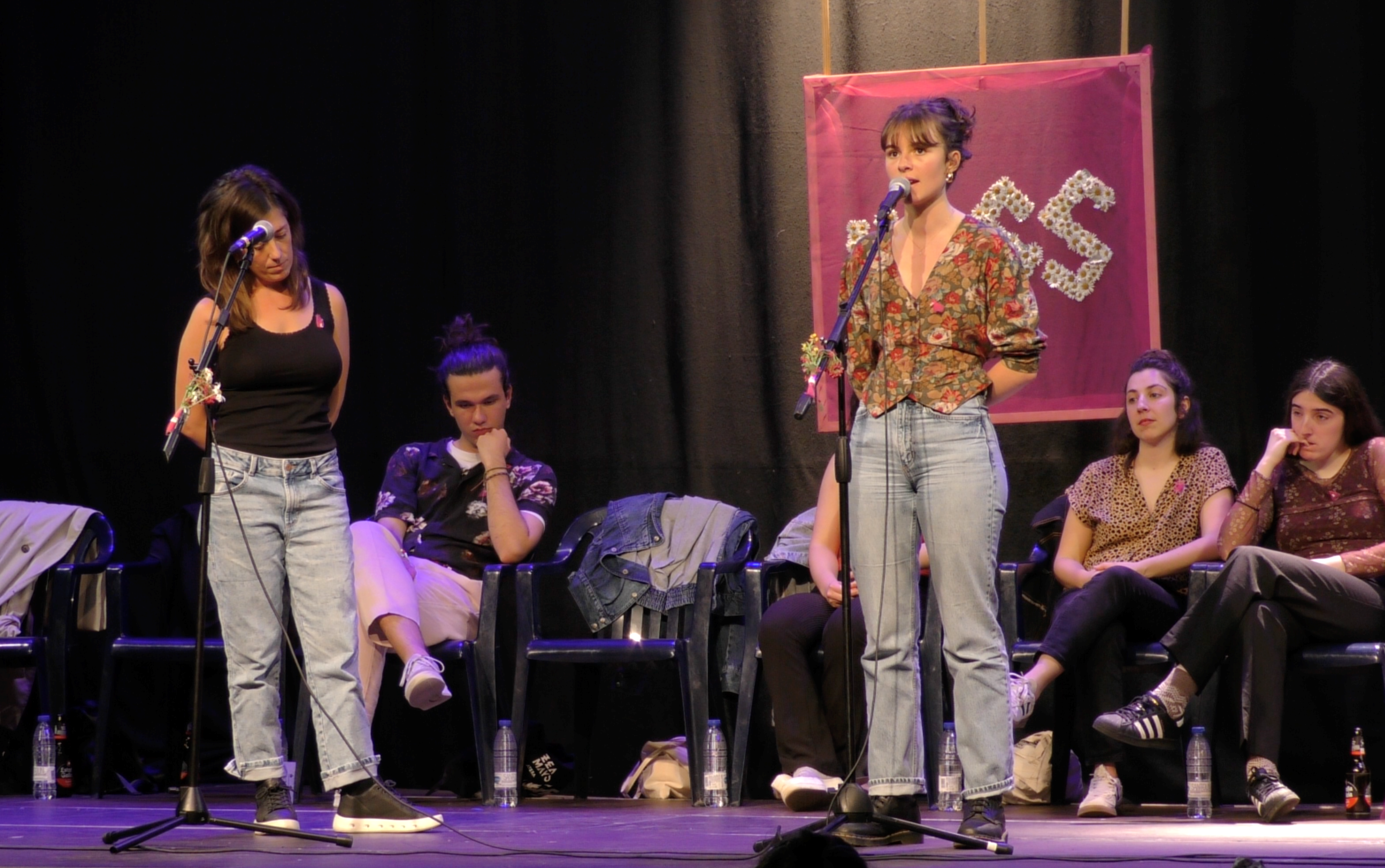Mamiki konpartsa feminist completes her 43-year career
- In the absence of a relief to meet the annual responsibilities, Mamiki Konpartsa Feminist of Bilbao has decided to end 43 years of career. The Feminist Comparison has begun a construction process to create a new feminist comparison.

"Come on! ". This is what the paper recently published by the feminist comparsa Mamiki says. After 43 years, the team has decided to end its activity. However, they express their intention to adopt other ways: "It is up to us to explore other paths (...) and to discover other forms of participation through our project that we so much want."
Mamiki was created four decades ago by the Women's Assembly of Bizkaia with the objective of guaranteeing a feminist vision in popular festivals and in this area "contributing from feminism, feminism and feminism". Along with the other comparsas that make up the Bilbao Comparison, they have made the decision to leave the federation and not assemble more txosnas. "Although sometimes relations have not been simple, we have made progress in the fight against aggression, we have developed protocols and we have carried out actions in favor of the fight of women, trying to make this holiday model for everyone", they value.
It is noted that the decision is sour, as it refers to structural problems and the inability to solve them. They explain that for a few years no relief has been found to meet all the responsibilities required for the installation of the txosna in the Big Week, it seems that they have had the involvement of people to set up the txosna and make shifts during the holidays, but they have had difficulty finding women who would be willing to assume annual responsibilities. That is why it was reported in June that this year’s Big Week no txosnas will be assembled.
In order to solve these structural problems, an internal process has begun and has been developing in recent years. However, "with great pain and displeasure, in gratitude for what we have shared these years with Konpartsak's friends in Bilbao", they have decided to end the process and close the comparison.
Before they disappear, they leave a starting point for the narrative: "It is very difficult to maintain the level of self-demand we have created among all. And responding to the degree of involvement it requires is becoming more and more complicated for personal reconciliation. That's the thought we want to leave."
The Comparsa Chispa Feminist under construction
Mamiki has announced that in the face of the decision not to put the txosna this year, there were "several initiatives" driven by women who "seemed to want to look to the future differently." "Most of them were outside of Mamiki's internal debate and work spaces," they say. They explain that they have tried to share attitudes with the members of these initiatives, but "it has not been possible".
The Mamiki Berria group expressed its intention to maintain Comparsa Mamiki, presenting itself as "a restructured group of several Mamiki women". According to a manifesto, the decision not to assemble the txosna was not made with all those who composed Mamiki, and Mamiki Berria wanted to "try to extend the project" and reorganize "this safe space for us so far".
Currently, under the name of Txinparta Feminist Konpartsa, the feminist comparison is under construction.
Duela aste batzuk, gurean egon ziren El Salvadorko eta Kanarietako emakumeen eskubideen aldeko hainbat aktibista. Sexu- eta ugalketa-eskubideez eta eskubide horiek urratzeak emakumeengan dituen ondorioez aritu gara; hala nola El Salvadorren berezko abortuak izanda homizidio... [+]
Zuberoako ohiturei buruzko bi liburu ditut gogoan. Batek XX. mendean aritu izan diren 180 dantzari eta soinulari aipatzen ditu. Haien artean, emakumezkorik ez da agertzen. Besteak, pastoralei egiten die errepasoa eta hor emakumeak aipatu aipatzen dira, baina omisio esanguratsuak... [+]
1984an ‘Bizitza Nola Badoan’ lehen poema liburua (Maiatz) argitaratu zuenetik hainbat poema-liburu, narrazio eta eleberri argitaratu ditu Itxaro Borda idazleak. 2024an argitaratu zuen azken lana, ‘Itzalen tektonika’ (SUSA), eta egunero zutabea idazten du... [+]
Antifaxismoari buruz idatzi nahiko nuke, hori baita aurten mugimendu feministaren gaia. Alabaina, eskratxea egin diote Martxoaren 8ko bezperan euskal kazetari antifaxista eta profeminista bati.
Gizonak bere lehenengo liburua aurkeztu du Madrilen bi kazetari ospetsuk... [+]
Pertsona lodiek lodiak izateagatik bizi izan duten eta bizi duten indarkeriaren inguruan teorizatzeko espazio bat sortzea du helburu ‘Nadie hablará de nosotras’ podcastak. Cristina de Tena (Madril, 1990) eta Lara Gil (Fuenlabrada, Espainia, 1988) aktibista... [+]
Donostiako Tabakaleran, beste urte batez, hitza eta irudia elkar nahasi eta lotu dituzte Zinea eta literatura jardunaldietan. Aurten, Chantal Akerman zinegile belgikarraren obra izan dute aztergai; haren film bana hautatu eta aztertu dute Itxaro Bordak, Karmele Jaiok eta Danele... [+]
Martxoak 8an egindako pintaketak gainetik margotu dituzte ikur faxistekin Zuberoako hiriburuan. Horren aurrean elkarretaratzera deitu dute, astelehenean.
Martxoaren 8a Getxo bere bizitokian igaro du: kumbia dekolonial eta antiarrazista topaketa antolatu du Algortako Herriko Tabernan, Abianen, Hija del Nopal DJrekin batera.
Argentinatik Getxora migratu zen Celeste Agüero, kantutegi herrikoi batekin eta poesia xuxurlatzeko... [+]
Mugimendu feministak manifestazioak egin ditu goizean Donostian, Gasteizen eta Iruñean eta arratsaldean Baionan eta Bilbon. Oinarrizko irakurketa partekatu dute, eta horri gehitu diote hiri bakoitzean bertako problematika, eragile eta ekimenen erreferentzia.
Bilgune Feministak Heldulekuak argi, Euskal Herria feminista leloa baliatu du M8an, azpimarratzeko feminismoak ematen dituela “datorrenari aurre egiteko tresnak”, eta gogorarazteko faxismoaren gorakadaren testuinguru hau helduleku horretatik irakurri eta borrokatu... [+]
MAITE: (biharko eguna antolatzen bere buruaren baitan) Jaiki, gosaldu, bazkaria prestatu, arropa garbitu, etxea garbitu, gizon hori jaiki, seme-alabak jaiki, hiru horien gosaria prestatu, haiek agurtu, erosketak egin, lanera joan, seme-alabak eskolatik jaso, merienda eman,... [+]
Festa egiteko musika eta kontzertu eskaintza ez ezik, erakusketak, hitzaldiak, zine eta antzerki ikuskizunak eta zientoka ekintza kultural antolatu dituzte eragile ugarik Martxoaren 8aren bueltarako. Artikulu honetan, bilduma moduan, zokorrak gisa miatuko ditugu Euskal Herriko... [+]
“Kasu, ez gitxu lo!”. Gure denbora eta manerekin baina heldu gira.
Azaroaren 25ean Baionako elgarretaratzera joan ez joan eta autoak nola partekatu pentsatzetik (joan-jina bi oren), bat-batean Lartzabalen elgarretaratze bat antolatu genuen, eta 47 emazte bildu!... [+]



















